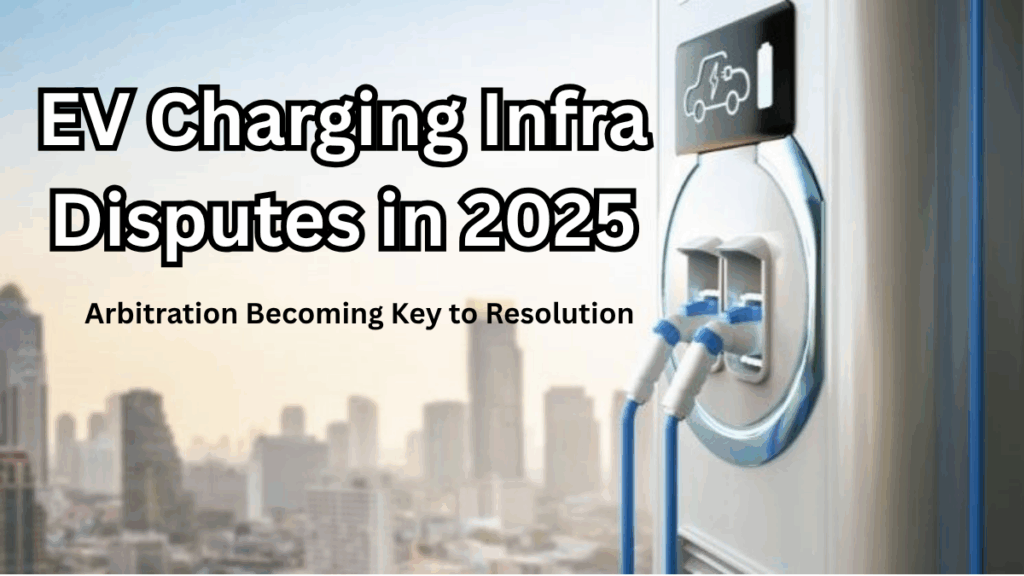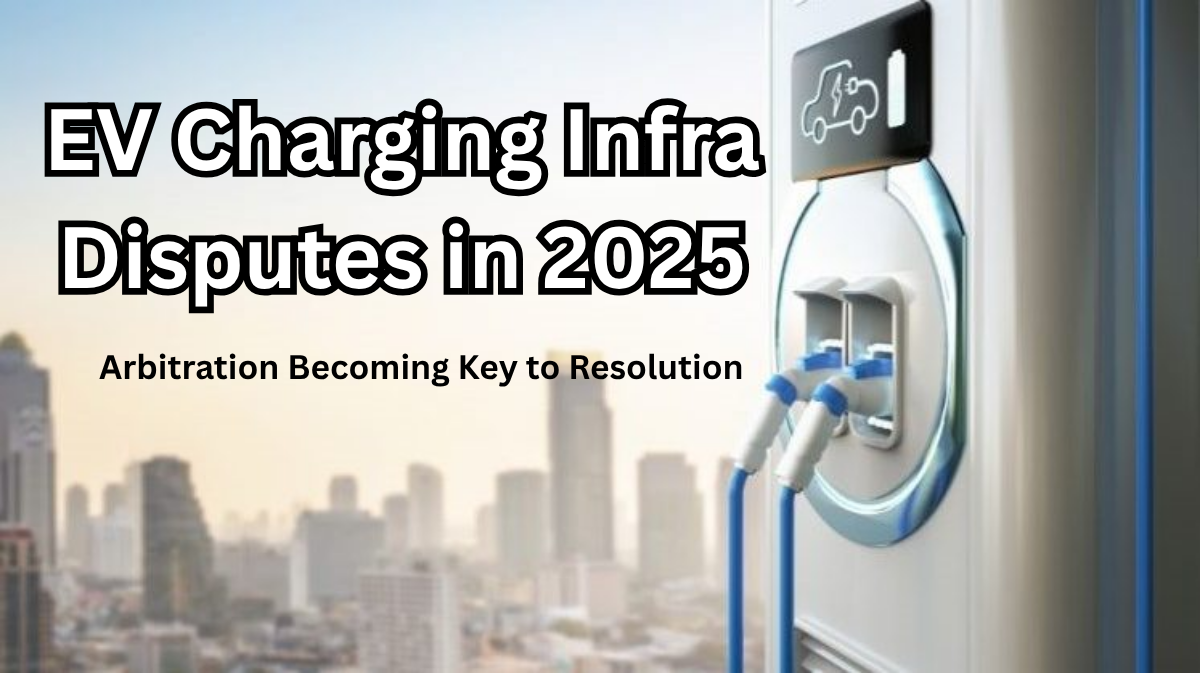As electric vehicles (EVs) continue to gain traction across India, the demand for fast and reliable charging infrastructure has skyrocketed. But alongside this growth, 2025 has also witnessed a surge in EV Charging Infra Dispute Cases—from land ownership issues to policy overlaps.
To address these complex issues, arbitration has emerged as a preferred path for policy conflict resolution in the EV sector.

Why Are EV Charging Infra Dispute Cases Increasing in 2025?
With both private and government players racing to build infrastructure, disputes have become more common due to:
-
Conflicting land rights between municipalities and private developers
-
Overlapping state and central government policies
-
Unclear revenue-sharing agreements in PPP (Public-Private Partnership) projects
-
Grid connectivity delays or rejections
-
Disagreements over technical standards and installation protocols
These issues have made many developers hesitant—slowing down the EV rollout in key urban centers.
How Arbitration Is Changing the Game
In response, many are turning away from lengthy court battles and toward arbitration. It’s now the go-to solution for resolving EV Charging Infra Dispute Cases with minimal disruption.
Benefits of Arbitration in EV Infrastructure Disputes
| Feature | Litigation | Arbitration |
|---|---|---|
| Speed of Resolution | Often takes years | Concludes in a few months |
| Cost | High legal expenses | More budget-friendly |
| Confidentiality | Public hearings | Private proceedings |
| Sector-Specific Expertise | General legal framework | Arbitrators with EV knowledge |
| Flexibility | Rigid procedures | Customizable process |
This modern approach is promoting smoother policy conflict resolution across the EV ecosystem.
Real-Life Arbitration Cases in EV Sector (2025)
Several disputes that could have delayed EV expansion were resolved quickly through arbitration:
-
Delhi-NCR: A private EV firm challenged a local authority’s sudden license revocation. Arbitration awarded damages and helped relocate the station.
-
Tamil Nadu: State and central EV incentives clashed. Arbitrators devised a blended incentive structure acceptable to both governments.
-
Bengaluru: A disagreement over grid load distribution between a charging service provider and BESCOM was resolved with a new operational protocol.
Government Push for Policy Conflict Resolution Through Arbitration
Recognizing the rising tide of EV Charging Infra Dispute Cases, the government is:
-
Adding arbitration clauses in new EV PPP contracts
-
Appointing neutral, sector-specific arbitration panels
-
Enabling fast-track arbitration for smaller disputes
-
Creating standard operating procedures (SOPs) to prevent delays in EV infra rollout
These measures aim to accelerate dispute resolution while keeping project momentum intact.
FAQs
Q1: What counts as an EV Charging Infra Dispute Case?
Any conflict related to the installation, operation, or management of electric vehicle charging stations—such as land use, technical faults, or regulatory overlaps.
Q2: Why is arbitration better than going to court for these disputes?
Arbitration is faster, less expensive, and often involves experts familiar with EV policy, making it ideal for resolving infrastructure disagreements efficiently.
Q3: Who can initiate arbitration in these disputes?
Both private companies and government bodies can initiate arbitration, especially if it’s outlined in their contract or agreement.
Q4: Are arbitration decisions legally enforceable?
Yes. Under the Arbitration and Conciliation Act, 1996, awards passed through arbitration hold the same legal weight as court judgments in India.
Final Thoughts
With the EV sector expanding rapidly, growing pains are inevitable. But India’s approach to resolving EV Charging Infra Dispute Cases through arbitration is proving both progressive and effective. This shift toward smart, time-saving policy conflict resolution is crucial if we want to meet the country’s electrification goals without hitting legal roadblocks.
Let’s hope the focus remains on collaboration, not conflict.
Click here to learn more
